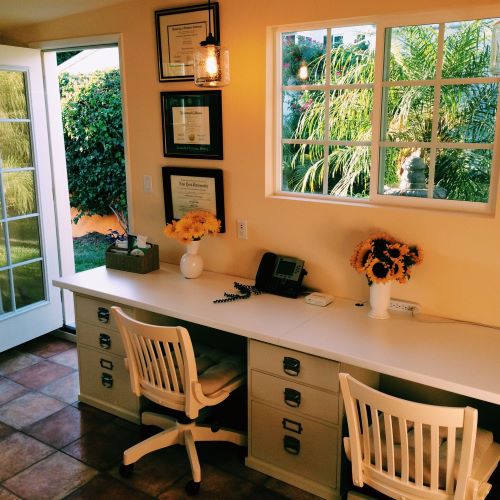REMOTE WORKING CHALLENGES IN SECTIONAL TITLE COMPLEXES

Covid-19 has changed the way that we live and work. Working from home has become the new normal for many. Predictions vary, but it is likely that more employers will let some employees work from home when the Covid-19 crisis is behind us.
If you fall into this group, you may be considering home alterations or extensions to gear up for a future of remote working; but if you live in a sectional title complex, this can be complicated, with an arduous, sometimes expensive, process to be followed, cautions specialist sectional title attorney and BBM Law director Marina Constas.
It’s easy to assume that one of the advantages of home ownership is that you can build-on when you need to, however, in a sectional title scheme, this is not the case, Constas stresses.
“Now that you need a more permanent workspace at your home, and the dining room table will no longer suffice, you may be thinking of building on a room or two. You may be considering a loft office in a double volume space. You could build a home office into the roof; or enclose the balcony or patio. Perhaps you have contemplated kitting out the garage as a home office and parking your car outdoors.
“None of this can happen in a sectional title complex without the members of the body corporate first approving the extension by special resolution,” she notes, adding that the Sectional Title Schemes Management Act sets out the process that must be followed before an owner even considers getting plans drawn up and approved by Council.
Constas explains that the first step when considering home extensions in a sectional title scheme is to ask the managing agent to call a special general meeting of the body corporate, to propose the passing of a special resolution giving consent for the owner to extend the boundaries of their section.
“The owner must go to this meeting well prepared, with all the supporting documentation needed to justify their proposed extension. This includes architectural drawings of the proposed new section. A land surveyor should be consulted, to give an indication of how much the planned extensions will increase the owner’s section. If this is by 10% or more, the owner would also have to obtain consent from all of the bondholders of all the units in the complex.”
Consult your neighbours
Before the special general meeting, she recommends that the owner wanting to extend should conduct a public relations exercise and discuss the extension with all his neighbours. “In many cases, other owners object just because they feel they were not consulted,” Constas says.
Enclosing a patio or balcony may seem to offer a simple solution to space problems in the new remote working world. However, it is not that simple in a sectional title development, according to Constas. “Just because you have a balcony or patio, does not automatically mean that you can enclose it, for a variety of reasons.
“The first is a municipal zoning requirement called coverage or Floor Area Ratio (FAR), which determines what percentage of the area of the erf may be covered with habitable building. A balcony is not ‘habitable building’ until it is enclosed,” she says.
“To determine if there is sufficient available FAR at the sectional title scheme to enclose a patio or balcony, you would first have to consult a town planner or architect. Then, if the balcony formed part of your section, you would need the permission of the trustees as well as the building department of the local Council.”
She notes, however, that the balcony or patio may be shown as common property on the sectional plan. “Enclosing it would therefore mean extending your section, and you would need to go through the same long process required for any other extension.”
Ordinary resolution
A new management rule of the Sectional Titles Schemes Management Act deals with the situation where an owner wants to enclose a registered exclusive use area balcony. “In this instance, the owner would need an ordinary resolution from the body corporate, subject to reasonable conditions prescribing the use or appearance of the structure,” Constas explains.
Sectional title owners considering converting their garage into a home office and rather parking their car outside may also run into problems, she advises. “The Sectional Titles Schemes Management clearly states that an owner may not use a section or exclusive use area for any other purpose than that indicated on the sectional plan.
A garage just be converted into a living space or a home office. In one recent instance, an owner who wanted to convert her garage into a hair salon ran into problems. Firstly, it was concluded that parking her car outside would impact other owners as there were already limited public parking spaces. Secondly, she was seeking to change the section from its purpose – which was for parking a vehicle.
“Alterations in sectional title are not impossible, but they are not easily undertaken, and owners should arm themselves with the facts before proceeding,” Constas concludes.


Sorry, the comment form is closed at this time.